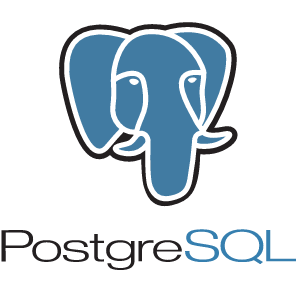Crate Data Quality Checks DAG
Imports local files to S3, then to CrateDB and checks several data quality properties
ETL/ELTData QualityDatabases
Providers:
Run this DAG
1. Install the Astronomer CLI:Skip if you already have the CLI
2. Initate the project in a local directory:
3. Copy and paste the code below into a file in the
dagsdirectory.
4. Add the following to your
requirements.txtfile:
5. Run the DAG from the local directory where the project was initiated:
"""Imports local files to S3, then to CrateDB and checks several data quality propertiesPrerequisites-------------In CrateDB, set up tables for temporarily and permanently storing incoming data.See the file setup/smart_home_data.sql in this repository.To run this DAG with sample data, use the following files:- https://srv.demo.crate.io/datasets/home_data_aa.csv- https://srv.demo.crate.io/datasets/home_data_ab.csvFinally, you need to set environment variables:AIRFLOW_CONN_CRATEDB_CONNECTION=postgresql://<username>:<pass>@<host>:<port>/doc?sslmode=requiredS3_BUCKET=<bucket_name>FILE_DIR=<path_to_your_data>AIRFLOW_CONN_AWS_DEFAULT=aws://<your_aws_access_key>:<your_aws_secret_key>@TEMP_TABLE=<name_temporary_data>TABLE=<name_permanent_data>ACCESS_KEY_ID=<your_aws_access_key>SECRET_ACCESS_KEY=<your_aws_secret_key>"""import osimport pendulumfrom airflow.decorators import dag, task, task_groupfrom airflow.models.baseoperator import chainfrom airflow.providers.common.sql.operators.sql import SQLExecuteQueryOperatorfrom airflow.providers.amazon.aws.hooks.s3 import S3Hookfrom airflow.providers.slack.operators.slack_webhook import SlackWebhookOperatorfrom airflow.providers.common.sql.operators.sql import (SQLColumnCheckOperator,SQLTableCheckOperator,)from airflow.providers.amazon.aws.transfers.local_to_s3 import (LocalFilesystemToS3Operator,)from airflow.providers.amazon.aws.operators.s3 import (S3CopyObjectOperator,S3DeleteObjectsOperator,)S3_BUCKET = os.environ.get("S3_BUCKET")ACCESS_KEY_ID = os.environ.get("ACCESS_KEY_ID")SECRET_ACCESS_KEY = os.environ.get("SECRET_ACCESS_KEY")FILE_DIR = os.environ.get("FILE_DIR")TEMP_TABLE = os.environ.get("TEMP_TABLE")TABLE = os.environ.get("TABLE")INCOMING_DATA_PREFIX = "incoming-data"PROCESSED_DATA_PREFIX = "processed-data"def slack_failure_notification(context):task_id = context.get("task_instance").task_iddag_id = context.get("task_instance").dag_idexec_date = context.get("execution_date")log_url = context.get("task_instance").log_urlslack_msg = f""":red_circle: Task Failed.*Task*: {task_id}*DAG*: {dag_id}*Execution Time*: {exec_date}*Log URL*: {log_url}"""failed_alert = SlackWebhookOperator(task_id="slack_notification",slack_webhook_conn_id="slack_webhook",message=slack_msg,)return failed_alert.execute(context=context)# Always execute this task, even if previous uploads have failed. There can be already existing# files in S3 that haven't been processed yet.@task(trigger_rule="all_done")def get_files_from_s3(bucket, prefix_value):s3_hook = S3Hook()paths = s3_hook.list_keys(bucket_name=bucket, prefix=prefix_value)# list_keys also returns directories, we are only interested in files for further processingreturn list(filter(lambda element: element.endswith(".csv"), paths))@taskdef list_local_files(directory):return list(filter(lambda entry: entry.endswith(".csv"), os.listdir(directory)))def copy_file_kwargs(file):return {"temp_table": TEMP_TABLE,"access_key_id": ACCESS_KEY_ID,"secret_access_key": SECRET_ACCESS_KEY,"s3_bucket": S3_BUCKET,"path": file,}def upload_kwargs(file):return {"filename": f"{FILE_DIR}/{file}","dest_key": f"{INCOMING_DATA_PREFIX}/{file}",}@task_groupdef upload_local_files():files = list_local_files(FILE_DIR)# pylint: disable=E1101file_upload_kwargs = files.map(upload_kwargs)LocalFilesystemToS3Operator.partial(task_id="upload_csv",dest_bucket=S3_BUCKET,aws_conn_id="aws_default",replace=True,).expand_kwargs(file_upload_kwargs)@task_groupdef home_data_checks():SQLColumnCheckOperator(task_id="home_data_column_check",conn_id="cratedb_connection",table=TEMP_TABLE,column_mapping={"time": {"null_check": {"equal_to": 0},"unique_check": {"equal_to": 0},},"use_kw": {"null_check": {"equal_to": 0}},"gen_kw": {"null_check": {"equal_to": 0}},"temperature": {"min": {"geq_to": -20}, "max": {"less_than": 99}},"humidity": {"min": {"geq_to": 0}, "max": {"less_than": 1}},},)SQLTableCheckOperator(task_id="home_data_table_check",conn_id="cratedb_connection",table=TEMP_TABLE,checks={"row_count_check": {"check_statement": "COUNT(*) > 100000"},"total_usage_check": {"check_statement": "dishwasher + home_office + "+ "fridge + wine_cellar + kitchen + "+ "garage_door + microwave + barn + "+ "well + living_room <= house_overall"},},)def move_incoming_kwargs(file):# file includes the whole directory structure# Split into parts, replace the first one, and join againparts = file.split("/")parts[0] = PROCESSED_DATA_PREFIXreturn {"source_bucket_key": file,"dest_bucket_key": "/".join(parts),}@task_groupdef move_incoming_files(s3_files):S3CopyObjectOperator.partial(task_id="move_incoming",aws_conn_id="aws_default",source_bucket_name=S3_BUCKET,dest_bucket_name=S3_BUCKET,).expand_kwargs(s3_files.map(move_incoming_kwargs))@dag(default_args={"on_failure_callback": slack_failure_notification},description="DAG for checking quality of home metering data.",start_date=pendulum.datetime(2021, 1, 1, tz="UTC"),schedule=None,catchup=False,)def data_quality_checks():upload = upload_local_files()s3_files = get_files_from_s3(S3_BUCKET, INCOMING_DATA_PREFIX)# pylint: disable=E1101import_data = SQLExecuteQueryOperator.partial(task_id="import_data_to_cratedb",conn_id="cratedb_connection",sql="""COPY {{params.temp_table}}FROM 's3://{{params.acces_key_id}}:{{params.secret_access_key}}@{{params.s3_bucket}}/{{params.path}}'WITH (format = 'csv');""",).expand(params=s3_files.map(upload_kwargs))refresh = SQLExecuteQueryOperator(task_id="refresh_table",conn_id="cratedb_connection",sql="REFRESH TABLE {{params.temp_table}};",params={"temp_table": TEMP_TABLE},)checks = home_data_checks()move_data = SQLExecuteQueryOperator(task_id="move_to_table",conn_id="cratedb_connection",sql="INSERT INTO {{params.table}} SELECT * FROM {{params.temp_table}};",params={"table": TABLE,"temp_table": TEMP_TABLE,},)delete_data = SQLExecuteQueryOperator(task_id="delete_from_temp_table",conn_id="cratedb_connection",sql="DELETE FROM {{params.temp_table}};",params={"temp_table": TEMP_TABLE},trigger_rule="all_done",)processed = move_incoming_files(s3_files)delete_files = S3DeleteObjectsOperator.partial(task_id="delete_incoming_files",aws_conn_id="aws_default",bucket=S3_BUCKET,).expand(keys=s3_files)chain(upload,s3_files,import_data,refresh,checks,move_data,delete_data,processed,delete_files,)# Require that data must have moved to the target table before marking files as processes.# delete_from_temp_table always gets executed, even if previous tasks failed. We only want# to mark files as processed if moving data to the target table has not failed.move_data >> processeddata_quality_checks()
 Postgres
Postgres Amazon
Amazon Slack
Slack Common SQL
Common SQL